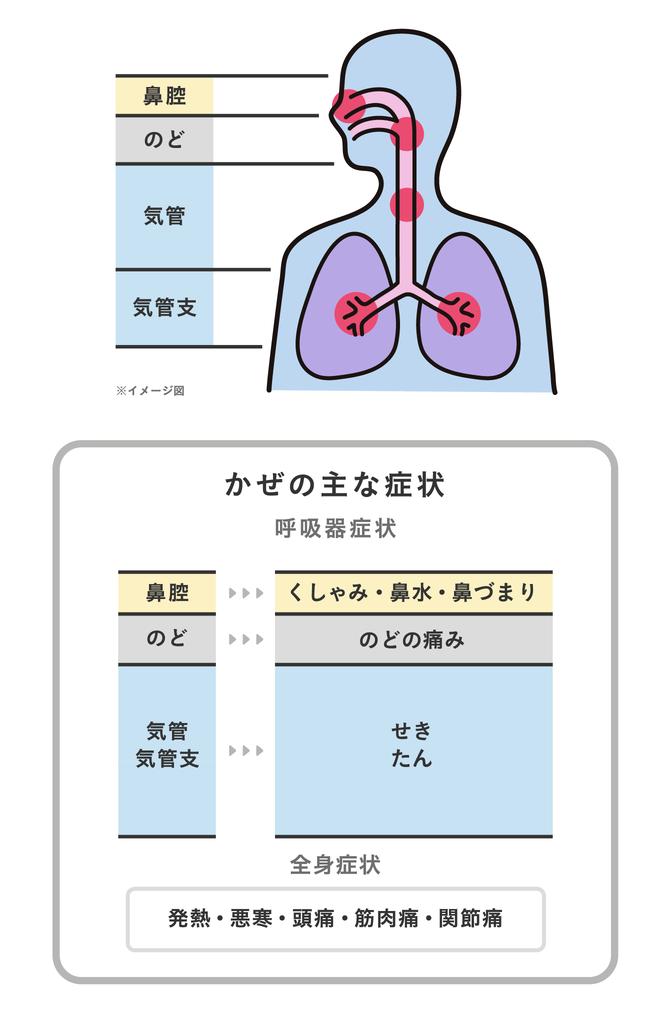What is the guideline for a long-lasting cough? Prevention with oral care and humidification
"Coughing" is one of the common cold symptoms. Even if the cough persists for a little while, there are times when you just leave it as it is, like "I wonder if the cold hasn't healed." Then, even after two weeks, I can't stop coughing, and it's hard to keep coughing in front of people. What would you do in such a situation?
●I'll wait and see how it goes ●Use over-the-counter cough medicine to get over it ●Is it something other than a cold? When you go to a medical institution, you can think of various measures, but what kind of cough is not a big problem, and what kind of cough is dangerous? We asked Yoshio Otani, a respiratory specialist, how to recognize and deal with a persistent cough.
◇◇◇
Long-lasting cough, how far does the cold go?
→A common cold will subside within 2 weeks.
In the first place, coughing has a role as a defense reaction of the body. When a foreign object or pathogenic bacteria enters the respiratory tract, sensors in the throat and trachea detect it and immediately transmit it to the brain, causing a cough to try to expel the foreign object or pathogenic bacteria outside. This response is the “cough reflex”. Coughing also has the function of expelling phlegm that is enmeshed with foreign matter. That's how coughing protects the body from dust, bacteria, and viruses.

So coughing isn't inherently bad. However, "Beware of a cough that lasts too long. A cold cough usually doesn't last longer than two weeks," says Otani.
According to Mr. Otani, 80-90% of colds are caused by viruses. The cold virus can multiply in the body for about two weeks at most, and even if left alone, the body's immune function will work and it will gradually heal. In other words, if you have a viral cold, you can often recover in two weeks if you rest. Bacterial colds, on the other hand, can be more severe and last longer than viral colds (but unlike viral ones, they often get better with antibiotics). Therefore, a cough that lasts for more than two weeks may indicate a disease other than the common cold.
"If you have a cold, you don't have to see a doctor, but if you have a cough that lasts for more than two weeks, you may need treatment," says Otani. Keep in mind that 2 weeks is a guideline.
What diseases can be associated with a persistent cough?
→"Cough asthma" is the most common in the number of patients
Then, how long does a cough last and what kind of disease can be considered? As shown in the figure below, cough can be divided into three categories according to duration: acute cough, protracted cough, and chronic cough.
The editorial department modified the figure published in "Guidelines for Coughing 2nd Edition" (Japanese Respiratory Society) Caused by an infection: A persistent cough that lasts longer than 3 weeks may be due to pneumonia or sinusitis, but generally the longer the cough lasts, the less likely it is to be an infection. If it lasts longer than eight weeks, it will be judged as a chronic cough, and other illnesses such as whooping cough or bronchial asthma will be suspected," says Otani.In addition, when coughing lasts for more than 2 weeks, cough asthma is the most common disease, followed by sinusitis (postnasal drip) and reflux esophagitis. "Sinusitis (postnasal drip), a disease of the nose, causes nasal mucus to flow into the throat, and reflux esophagitis causes the backflow of gastric juice to irritate the throat and airways, causing coughing. Yes, I have the impression that asthma occurs in more than half of the coughs that last for two weeks or more,” says Otani.
Other illnesses that cause coughing include aspiration pneumonia, lung cancer, pulmonary tuberculosis, chronic obstructive pulmonary disease (COPD), mycoplasma, whooping cough, allergic rhinitis, and psychogenic cough. There are various things such as Some of them are serious illnesses, so don't take them lightly.
Also read20 masks a day Preventing a cold from a doctor who can't rest
It looks like a cold, but it's actually different Symptoms that should be seen
